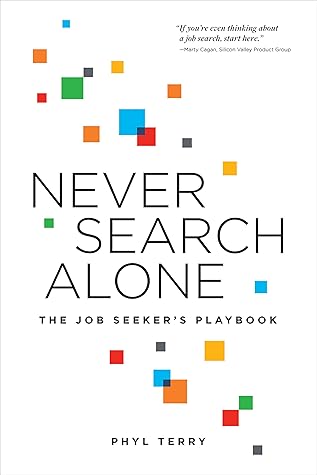More on this book
Kindle Notes & Highlights
“Independent” means that you are asking for help as a learner constantly looking to improve. You do it as a self-reliant person who wants advice and perspective.
“Emotional balance sheets” — just like financial balance sheets — have assets and liabilities. Assets include hope, confidence, motivation, trust, and seeing through blind spots, while liabilities include envy, insecurity, unhappiness, dejection, and fear.
Without hope, then you drain the asset side of your emotional balance sheet (and increase your liabilities), undermine your prospects, and even sabotage yourself.
Just seeing that we are not uniquely screwed up improves our emotional balance sheets because that shared experience reduces envy, that great amplifier of insecurity and destroyer of hope.
Cognitive empathy is not conventional empathy, nor is it sympathy. It’s connecting with someone who has been (or is) in your shoes.
The most important thing is this: when you start to interview with a company, you should create a Job Mission with OKRs that will guide your interviews, improve the odds of getting an offer, and set you up well to negotiate compensation as well as the budget and resources you’ll need (I explain what this means in Chapter 12 and provide examples of Job Missions in the Free Tools download on Phyl.org).
To be fair, many job seekers understand this, but then make a related mistake. They use their initial networking and interviewing as ‘research.’ Right idea, wrong implementation.
Rejections even for jobs you don’t want undermine your confidence and can thus negatively affect your whole search.
It’s always easier to start with what you do not want. So, what would you hate to do next? What kinds of things do you not enjoy?
The biggest mistake job seekers make is to not send thank-you notes and not update the people they’ve met with. Updating deepens relationships and strengthens your community of support throughout your job search and beyond. It’s also part of living a life of service to others.
If you were in my shoes, how would you approach this job search?
“How could I have been a better leader here?” and “What can you tell me that I can improve upon in my next job?” In other words, he conducted what he called a Reverse Exit Interview.
Do you think what I’ve shared in terms of strengths and weaknesses, what I want and don’t want . . . makes sense?
keep a journal of detailed notes from every conversation.
after each of these interviews, take note of what they say, thank them orally, send a written thank-you note, and keep going.
If you were in my shoes, how would you approach this job search?
The next step of your Listening Tour is to speak to recruiters, including, depending on your focus, venture capitalists and private equity executives who recruit for their portfolio companies.
Again, I also recommend you consider asking anyone at venture capital (VC) or private equity (PE) firms that you may know. One of their biggest jobs is to recruit for their portfolio companies so you can ask them the same questions I suggest for more traditional recruiters (and they may often have a direct lead for you). In fact, VC and PE firms increasingly have “human capital partners” who want to talk to job seekers in the hopes they can be of use to the portfolio. They also have people in operating/consulting roles, which at times help find talent.
Keep your mind open to continuously discovering new things about the market and about yourself. Determining your Candidate-Market Fit is a non-linear and recursive process that continues throughout your whole job search.
always be doing two things: 1) setting up new future meetings; 2) conducting meetings.
She had been writing to record labels and telling them she would do any job. He disagreed with that and told her not to tell labels she would do “anything,” but, as I’ve said, find a focus or “cozy little box.” So, she chose marketing as her focus.
The whole point is to be relational. This is not just about getting a job. It’s about building friendships and trust and a village of support around you.
The worst thing to do is to present yourself as someone who could do a range of things depending on what a company needs.
keep asking for more details and clarification. Every answer is an “offer” to ask more.
The Ladders provides good lists of interview questions you should ask (and be ready to answer).
one of the most common ways I see job seekers fail after they get a new job: they do not help their teams understand how they work. That’s why everyone needs to create a “user manual” as we’ll discuss next.
You share this blueprint, user manual, or readme file (the same kind of document goes by three different names) with your team, as a way of asking them to help you be a better leader and helping them learn how to work with you.
A blueprint is a good way to forewarn your teams to help you be a better leader
go to a local See’s (or, if you must, some other chocolatier), buy some chocolate, and post a photo toasting Chic on Instagram with the tag #thanksChic. #thanksChic!


